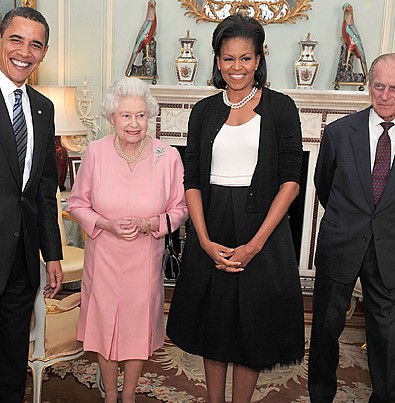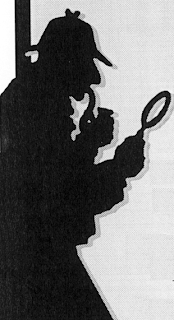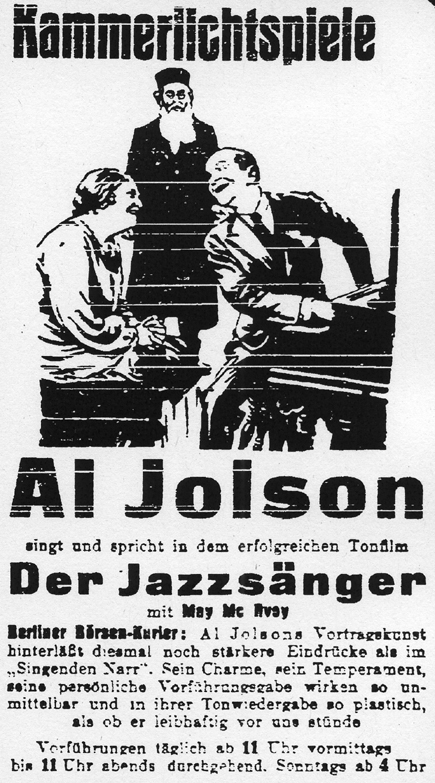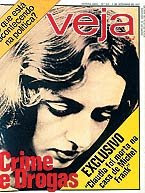Charlie Chan é um polícia de Honolulu. De ascendencia chinesa, inicia a série de livros como sargento e termina como inspector.
Sempre pronto a dizer um provérbio chinês que justifique as suas acções ou as dos outros, passeia-se entre Honolulu e o continente americano, desvendando os crimes que lhe surgem no caminho.
Personagem nascida na imaginação do escritor Earl Derr Biggers, surgiu em seis livros, publicados entre 1925 e 1932, todos editados em Portugal.
A casa sem chaves
O papagaio chinês
Atrás da cortina
O camelo preto
O ladrão de diamantes
O enigmático criado chinês
No decorrer das suas aventuras fica-se a saber mais sobre Chalie Chan. Foi mordomo antes de ser polícia e tem uma numerosa família, onze filhos. Mostra também desprezo pelos japoneses, o que deverá ser enquadrado historicamente nos factos históricos da primeira metade do século XX.
É uma das personagens da literatura policial que mais adaptações cinematográficas teve.
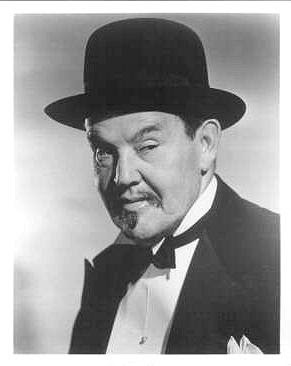
" 'To destroy false prophet must first unmask him before eyes of believers.'
Actors
Oland
 Warner Oland, a native of Nyby, Sweden, was born Johan Verner Ölund on October 3, 1879, and emigrated to the United States with his parents in 1892. His first acting experience was in the theater, where he also was proficient in set design.
Warner Oland, a native of Nyby, Sweden, was born Johan Verner Ölund on October 3, 1879, and emigrated to the United States with his parents in 1892. His first acting experience was in the theater, where he also was proficient in set design.
Film work began for him in 1912, and he soon became a successful character actor, specializing in playing "heavies." His features suited believable portrayals of orientals, and he was a fine choice as Twentieth Century Fox's first Charlie Chan.
Before his success playing Charlie Chan, Oland played Al Jolson's father in "The Jazz Singer" (1927), notable of course because of its sound sequences.
During the run of the Chan series, Oland appeared in other films too, notably "Shanghai Express" (1932), with Marlene Dietrich; "The Painted Veil" (1934), with Greta Garbo; and "Werewolf of London" (1935).
Truly a remarkable man, Warner Oland (or "Jack" to his friends) spoke several languages, and was a scholar of philosophy, classical music and art, and a translator of the works of Strindberg. He was married to painter Edith Shearn in 1908.
Oland left the set one day in 1937, and did not return. Alcohol was ruining his marriage and his health, and he decided to sail to Europe to regroup. He died of bronchial pneumonia in Sweden on August 6, 1938.
Sidney Toler
 Sidney Toler had fifty films under his belt before he first played Charlie Chan for Fox. He also had much success on Broadway, where he not only appeared on the stage, he wrote for it. He was an accomplished baritone opera singer as well.
Sidney Toler had fifty films under his belt before he first played Charlie Chan for Fox. He also had much success on Broadway, where he not only appeared on the stage, he wrote for it. He was an accomplished baritone opera singer as well.
He was born April 28, 1874, in Warrensburg, Missouri, the son of a horse breeder, and graduated from Kansas University. His first professional stage experience was in Kansas City. A year's work with a stock company in Brooklyn preceeded his first appearance on Broadway in 1903. For the following decade, his own touring companies kept him busy, and he was also busy writing plays. Two of them, "Golden Days," and "The Exile," appeared on Broadway. By the 1920's, Toler was a star of the New York stage, and in 1930 he went to Hollywood.
Toler's pre-Chan Hollywood output included "Blonde Venus" (1932), with Cary Grant and Marlene Dietrich, "Spitfire" (1934), with Kate Hepburn, and he appeared in Laurel and Hardy's "Our Relations" (1936).
When Warner Oland died in 1938, Fox paired Toler with "#2 son" Victor Sen Yung, and the series carried on, the first offering being "Charlie Chan in Honolulu." Both Noah Beery and Leo Carrillo had screen-tested to replace Oland, but Toler won the role.
Toler was so ill during the making of his last Chan films that he could barely walk. On Wednesday, February 12, 1947, he died at home in Hollywood, of intestinal cancer. He is buried in Wichita, KS.
Roland Winters
 Roland Winters, the actor who played Charlie Chan in Monogram Studios' last Chan pictures, was born in Boston, Mass., on December 22, 1904.
Roland Winters, the actor who played Charlie Chan in Monogram Studios' last Chan pictures, was born in Boston, Mass., on December 22, 1904.
He began work in the theatre in 1928, and by 1933 was a successful supporting player. He also did a fair amount of radio, including appearances on the "Kay Kyser Show," the "Kate Smith Show," and "Henry Aldrich."
Monogram Pictures chose him to replace Sidney Toler after Toler's death in early 1947, and Winters made six Chans for the studio, the first being "The Chinese Ring," and the last, "The Sky Dragon." Winters was the youngest of the big three that tackled the role of the great detective-- he was 44, but as Ken Hanke notes in his book, that hardly made him a more energetic Chan. Of Oland's, Toler's and Winters' characterizations, Winters' Chan was the least likely to over-exert himself to solve a case.
After his Monogram Chans, Winters did TV work, including appearances as the boss on "Meet Millie" in the early 50s, and he was in the Smothers Brothers' 1965 sitcom (not the later variety series). As far as other film work, he was in more than 80 films total, including "13 Rue Madeleine" in 1948 (with James Cagney), and "Blue Hawaii" in 1961 (as Elvis' dad!).
The late 60s marked a return to the Broadway stage for the actor-- he appeared in the musical "Minnie's Boys."
Roland Winters died of a stroke at the Actor's Fund Nursing Home in Englewood, N.J., on October 22, 1989. He was 84.
Charlie's Offspring
 Keye Luke played Lee Chan, #1 son. Luke was born in China in 1904, and came to the U.S. at an early age. He was a talented artist and his initial work in the film industry was on that side of the camera. His film acting debut came in 1934's "The Painted Veil," which also featured Warner Oland.
Keye Luke played Lee Chan, #1 son. Luke was born in China in 1904, and came to the U.S. at an early age. He was a talented artist and his initial work in the film industry was on that side of the camera. His film acting debut came in 1934's "The Painted Veil," which also featured Warner Oland.
His first appearance as Lee Chan came in 1935, in "Charlie Chan in Paris." After Oland died, Fox went with Sidney Toler and Sen Yung, but Luke would reprise his role in several of the later Monogram pictures. (Note: When Oland disappeared during the filming of "Charlie Chan at the Ringside," Fox salvaged some of the footage for "Mr. Moto's Gamble," where you can see Keye Luke as Moto assistant Lee Chan.)
Keye Luke appeared later in the "Dr. Kildare" film series, and, later still, in the "Kung Fu" TV series. He was also the voice of Charlie Chan on the Saturday morning cartoon, "Charlie Chan and the Chan Clan" in the 1970s. He died in 1991.
Victor Sen Yung debuted as Jimmy Chan, #2 son, in "Charlie Chan in Honolulu." Toler was debuting in his role as well. When Chan went to Monogram, Sen Yung disappeared for a while, then was reunited with Sidney Toler for Toler's last three Chan pictures. In five of the six Roland Winters Chans, Yung was there, oddly enough as #2 son Tommy Chan (here's to continuity!).
Also a Chinese American, Victor Sen Yung would later play "Hop Sing" on the popular "Bonanza" TV show. He died in 1980.
Although Lee and Jimmy were the primary Chan onscreen offspring in the better Chan films, several other siblings made appearances. And here's where it gets complicated.
Benson Fong appeared in several of the Toler Monogram pictures as #3 son Tommy. As noted above, in the Monograms with Roland Winters as Chan, Sen Yung suddenly became Tommy Chan. In one film, "Charlie Chan in the Secret Service," Tommy was joined by Iris Chan, a Chan daughter. She was played by Marianne Quon. Then, in "Charlie Chan in Black Magic," daughter Frances Chan was played by actress (...are you ready?) Frances Chan.
Earlier in the series, Layne Tom, Jr. first appeared in "Charlie Chan at the Olympics," as young Charlie Chan, Jr., then played the first incarnation of Tommy Chan, in "Charlie Chan in Honolulu." In "Charlie Chan's Murder Cruise," he played son Willie Chan (are you getting all this down?).
Just in case this hasn't been quite confusing enough, let me add that Keye Luke's brother Edwin appeared in "The Jade Mask" as #4 son Eddie Chan.
Mantan Moreland
 Mantan Moreland ran away to join the circus at age 12, had success in many years in vaudeville, and then came to Hollywood, where he appeared in hundreds of movies.
Mantan Moreland ran away to join the circus at age 12, had success in many years in vaudeville, and then came to Hollywood, where he appeared in hundreds of movies.
Born in Monroe, Louisiana, on September 4, 1901, his is a face familiar to most fans of classic Hollywood. Charlie Chan fans know him as Birmingham Brown, chauffer to the great detective in a number of pictures for the Monogram studio, but those films are but a small portion of Mantan's prolific output.
Mantan's wide-eyed portrayals of seemingly countless nervous manservants and train conductors cause mixed reaction in these politically correct days of a new century. But whatever the reaction to Mantan's film legacy all these years later, the fact remains that Moreland was a very talented character actor with a great gift of comic timing. He was one of the movies' greatest clowns.
Moreland's last appearance in a major film was in 1970's "The Watermelon Man." He died in Hollywood on September 28, 1973, at the age of 72".
(http://www.charlie-chan.com/page-actors.html)
===
"DVD Reviews
CHARLIE CHAN COLLECTION VOLUME 1
By Mark Rhodes • Jun 20th, 2006 •
20th Century Fox

The release of the Charlie Chan Collection Volume I (Charlie Chan in London, Charlie Chan in Paris, Charlie Chan in Egypt, Charlie Chan in Shanghai, Eran Trace) revives the legacy of one of the most interesting and controversial characters in genre fiction and genre film. Created in the mid-20’s and featured in six novels by mystery novelist Earl Derr Biggers, Charlie Chan, an officer of the Honolulu Police Department, was said to have been inspired by a Hawaiian policeman named Chang Apana (this collection includes the back story of Apana on the “Real Charlie Chan” featurette).
The films in this collection are great examples of genre movie making in Hollywood’s Golden Age. Each is under 90 minutes and features plots and clever twists to rival any in the ‘Sherlock Holmes,’ ‘Thin Man,’ or ‘Agatha Christie’ series. Charlie Chan in Shanghai has a particularly clever murder sequence that sets the plot in motion. Featured in CC in Paris is a spectacular ‘Apache Dance’, and in CC in Egypt, an early talking appearance by black actor Lincoln Theodore Monroe Andrew Perry, popularly known as Stepin Fetchit.

Charlie Chan (Warner Oland) strikes a tough guy pose (Fox Home Entertainment)
In this collection, Chan is played by the Swedish actor Warner Oland. Oland brought an unflappable elegance and great timing to the part. Indeed, unlike Sherlock Holmes, James Bond, Tarzan, or any other mythic/pulp heroes, Charlie Chan seems to be a one actor role. Other performers have played Chan, but more often than not, they end up doing a heavy-handed imitation of Oland’s effortless characterization. Despite Oland’s graceful portrayal, there was (and still is) a fair amount of controversy about Chan being portrayed by a Caucasian actor, as well as about the broken English and fortune-cookie one-liners which characterize Oland’s dialog. These aspects of the Chan series created enough of a PC storm to have the Fox Movie Channel remove the films from circulation in recent years.

Warner Oland as Charlie Chan in a scene from Charlie Chan in Paris (Fox Home Entertainment)
Which brings up the question of these films: Are they racist? Charlie Chan is written as a brilliant and resourceful detective with almost supernatural powers of deduction. Oland’s portrayal, as mentioned earlier, nicely combines a light touch with the character’s mental superiority. To me, Charlie Chan’s competence and surprising toughness (he is adept with firearms) make it tricky to brand these films, and certainly Orland’s portrayal, as racist. Bear in mind I realize that many readers may disagree with me.
This series include nice featurettes about the history of the character, notably “The Legacy of Charlie Chan” and “In Search of Charlie Chan.” An interesting oddity included in the set is Eran Trace (They Were Thirteen), the Spanish language version of the lost Charlie Chan Carries On, with Spanish actor Manual Arbo mimicking Oland’s mannerisms. The overall quality of the films is excellent considering their age. It is hoped that Fox’s second volume will be equally provocative and help restore the legacy of this great film character".
(http://www.filmsinreview.com/2006/06/20/charlie-chan-collection-volume-1/)
===

(http://www.ew.com/ew/article/0,,1204672,00.html)
===
"HOMENAGEM A ARTHUR OMAR
O INSPETOR [NOME DO CURTA-METRAGEM EXPERIMENTAL DE 11 MINUTOS DE DURAÇÃO]
- Ano do festival: 2009
- Programa: HOMENAGEM A ARTHUR OMAR
- Diretor: Arthur Omar
- Duração: 11
- Cromia: cor/color
- Pais: Brasil/Brazil
- UF: RJ
- Ano: 1988
- Sinopse: Crime e combate ao crime no Rio de Janeiro. Com o “mestre dos disfarses”, o grande inspetor Jamil Warwar, que se tornou famoso ao elucidar o caso Cláudia, de grande repercussão na imprensa brasileira, e denunciar o envolvimento de figuras da política e da alta sociedade carioca no tráfico internacional de cocaína, o que lhe valeu punição com sua transferência para uma obscura delegacia do interior do país. A psicologia, os métodos e a filosofia do detetive conhecido como “O Baretta Brasileiro”. Uma espécie de Hamlet popular, mergulhado em mil disfarces, Estrela solitária e pura na estranha e perigosa galáxia policial do Rio de Janeiro.
- Cia Produtora: Melopéia/Córtex.
- Fotografia: Walter Carvalho
- Edição: Aída Marques
- Elenco: Jamil Warwar
- Nome Contato: Arthur Omar
- Email Contato: [email protected]".
(http://curtacinema.com.br/index.php/br/filmes/item/231)





